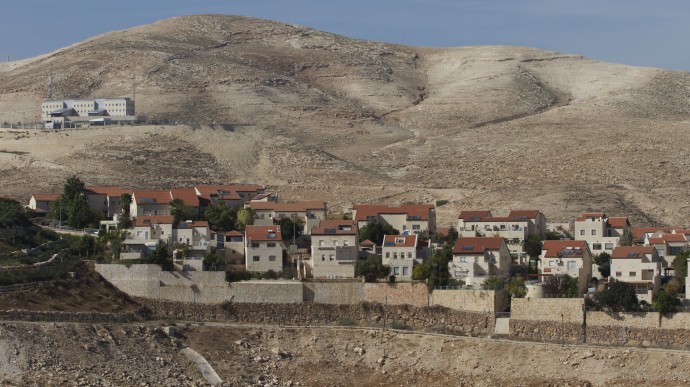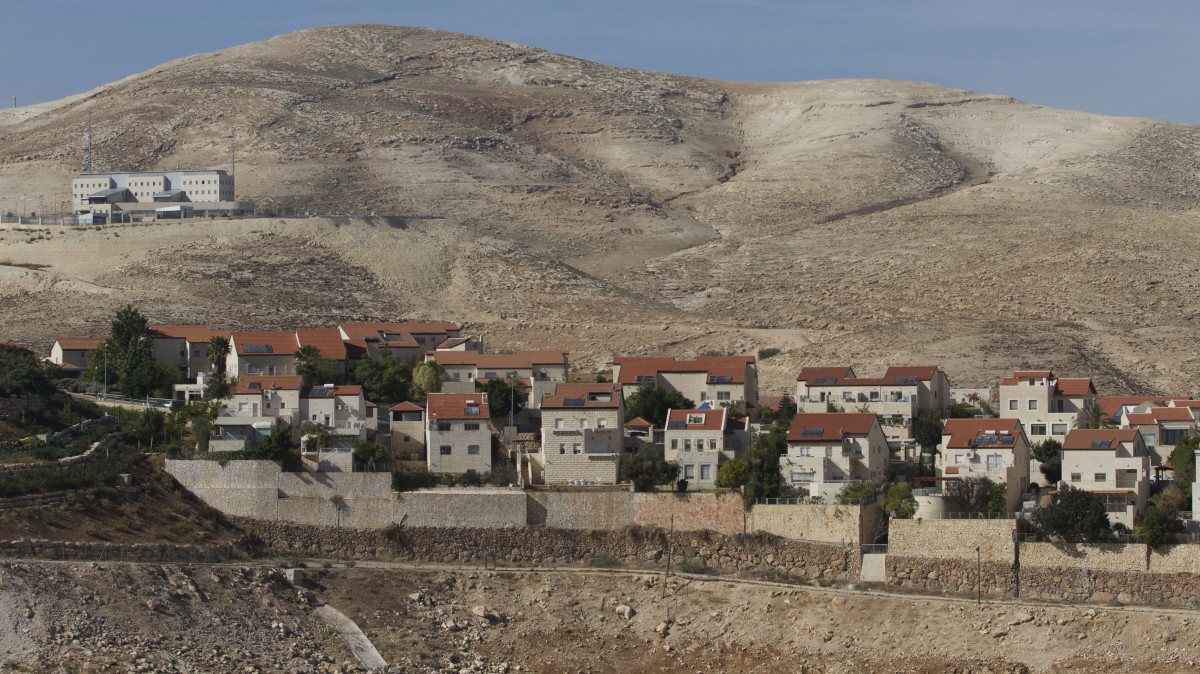
(MintPress) – The Israeli government announced plans to build 3,000 illegal settler homes in the occupied West Bank Friday, dealing what U.N. Secretary General Ban Ki Moon has called a “near fatal blow to the two state solution.” The move comes in response to Palestinian Authority (PA) President Mahmoud Abbas’ decision to put the issue of Palestinian non-member observer status before the U.N., a measure which passed easily in the U.N. General Assembly late last month.
The settlement expansion continues more than 40 years of illegal settlement construction on land that Palestinians hope will form part of their future state. A bevy of countries have expressed deep concern over the latest announcement but did not elaborate on plans to further dissuade Israel from pushing forward with de-facto annexation of the West Bank.
With little more than sharply worded rebukes from the international community, Israeli Prime Minister Benjamin Netanyahu will have little incentive to change course and pursue constructive peace negotiations with the Palestinians.
‘Expressing concern’: Will there be further action?
Even stalwart defenders of Israel, including the U.S., expressed “concern” over Tel Aviv’s latest announcement. “The U.S. opposes all unilateral actions including settlement activity and housing construction in East Jerusalem, as they complicate efforts to resume direct, bilateral negotiations,” the U.S. Department of State posted on Monday.
However, the State Department’s announcement is out of sync with discussions held within the U.S. Senate. Elected officials in Washington expressed robust, bipartisan support for cutting off aid to the Palestinian Authority on Monday, further limiting the mobility of President Abbas’ government.
“The biggest fear I have is that the Palestinians achieve this status, it won’t be very long before the Palestinians use the United Nations as a club against Israel,” said Sen. Lindsey Graham (R-S.C.).
The proposed legislation would only come into play should the Palestinians attempt to bring cases before the International Criminal Court (ICC), a newly acquired right following the adoption of non-member observer status.
It is unlikely that the U.S. will bring significant pressure to bear on Israel, a close ally that has enjoyed virtually unwavering support from Washington. Israel is the recipient of $3 billion in annual aid.
European states were a bit more vocal in their condemnation, with France and Sweden summoning their respective ambassadors to express their condemnation of the recent announcement.
Carl Bildt, the Swedish Foreign Minister, expressed his country’s deep concern saying, “We had anticipated that they would be ready now to enter into direct peace negotiations with the Palestinians after the vote in the U.N., and instead, we are extremely concerned over the announcement that we’ve heard from the Israeli government.”
Similarly, Russia’s foreign ministry posted a tweet condemning the move, writing, “Israeli construction on Palestinian territories occupied in 1967 is illegal, unrecognized and condemned by Russia and internationally.”
Britain, one of the 41 states abstaining from last month’s vote, expressed what has become empty, obligatory criticism without further action. Since the Balfour Declaration of 1917, a letter expressing support for the establishment of a Jewish state in Mandatory Palestine, the U.K. has also shown strong support for the Jewish state.
However, no European country expressed support for permanently recalling ambassadors or sanctioning Israel through non-violent economic measures. With little more than verbal rebukes of the settlement announcement, the Israeli march toward outright annexation and apartheid continues unabated. Indeed, even on the diplomatic and international levels, the old adage, “Actions speak louder than word,” holds true.
E-1 settlement construction
While most of the international community has expressed deep concern, Israel has moved consistent with internal policies that place settlement expansion above concessions that could bring peace and long-term security.
Avigdor Lieberman, Israel’s Minister of Foreign Affairs and leader of the Yisrael Bitenu “Israel is our home” party, called for the toppling of Mahmoud Abbas’ government and the annexation of parts of the West Bank in the lead up to last month’s vote.
Additionally, the Israeli government withheld $120 million in payments to the Palestinian Authority in retaliation for the U.N. observer bid last month.
The building on land titled “E-1” is especially contentious because of its placement near East Jerusalem, the capital of the future Palestinian state. Construction on this land is illegal under international law and will likely bisect the West Bank, isolating Ramallah and Bethlehem, two of the largest Palestinian cities.
Restarting talks
Direct negotiations have not taken place since the 2007 Annapolis conference. In addition to reaffirming the Clinton parameters and the concept of mutual recognition, the Israeli delegation expressed a willingness to return parts of East Jerusalem to Palestinian leadership in the Annapolis peace discussions.
However, the narrow window for creating an enduring two-state solution could have slipped away with the latest Israeli settlement expansion.
Although there are approximately 500,000 settlers living in the West Bank, many of the settlement blocs could be incorporated into the Jewish state in exchange for land of comparable size in value.
This sort of “land swap” has long been accepted as a legitimate means of redrawing the map as long as both Israeli and Palestinian leadership agree to the terms.
Additionally, thousands of Jewish-Israelis currently live in settlements because of economic incentives provided by the state. Should there be positive investment within the green line, Tel Aviv could help thousands move back into legally recognized Israel.
An evacuation of all Jewish settlements in Gaza in 2005 demonstrates that with the political will, Israel still has the potential to transform policy and work for peace.
According to Israel’s financial daily publication the Calcalist, Netanyahu’s government has increased government spending on settlements by 38 percent.
Peace Now, an Israeli advocacy group, reports a 20 percent increase in settlement construction in 2011 and a 4.5 percent increase in the number of Jewish settlers in 2012.
While the Israeli government could reinvest these funds into legally recognized Israel, unilateral moves to expand settlements are likely calculated moves to assuage conservative constituencies ahead of the January 2013 general elections.


